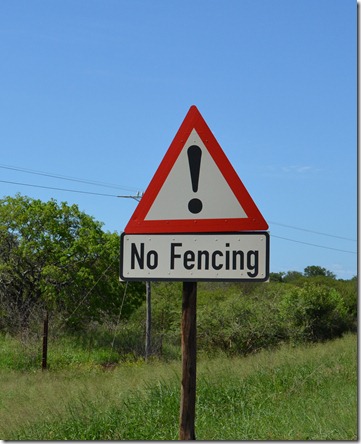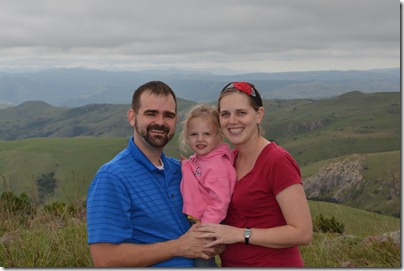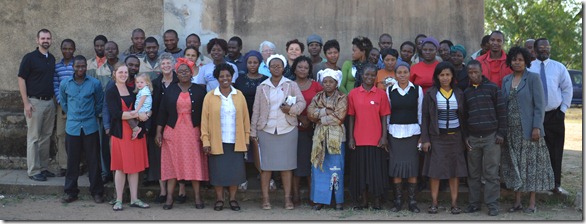The following are remarks by Stephen Lewis, Co-Director of AIDS-Free World, delivered at a plenary session at the 2011 ICASA. I have reposted them in their entirety because I believe they are worth reading and sharing. The emphasis is mine. This can also be found online at: http://safaids.net/content/remarks-stephen-lewis-co-director-aids-free-world-delivered-plenary-session-2011-icasa
ADDIS ABABA – With your indulgence, I’m going to deviate from the assigned topic. I shall address the Millennium Development Goals, but not in the way that was anticipated. There are two reasons. First, I want to speak in an unusually personal way, and from the heart, and in a fashion that leaves no room for ambiguity. Second, I consider the attack on the Global Fund to be the most serious assault it has endured in its ten-year history. I would feel utterly delinquent to let the issue slide.
I am seized by frustration and impatience. Let me explain.
I’m thrilled when UNICEF tells us of the possibility of the virtual elimination of pediatric AIDS by 2015. But I know-as knowledgeable people in this audience know-that it remains an unlikely prospect, but more important, that we lost several precious years during the last decade where we simply didn’t apply the knowledge we possessed to prevent vertical transmission. It was a terrible failure on the part of international agencies and governments. Worse, the mother barely factored into the so-called "PMTCT" equation at all. As we come to this thrilling moment of progress, I cannot forget the millions of infants who died unnecessarily and the women who were never given treatment.
I’m thrilled at the creation of UN Women, and the possibility, once they join as a formal co-sponsor of UNAIDS, that the focus on women will be given a new lease on life. But I can’t dislodge from my mind the experience of my years in the role as Envoy, and subsequently working with AIDS-Free World, when it became clear that in every aspect of the pandemic women were rendered subordinate. Gender inequality doomed their lives. Sexual violence fed and feeds the virus. The entire survival of communities and families was placed on their shoulders. Men were the social determinants of women’s health, and men simply didn’t care. As we come to this thrilling moment of potential progress, I can’t avoid the spectral faces of stigma, discrimination, isolation, and pain, and they are the faces of women. That doesn’t mean that women aren’t the core of courage and strength in this pandemic; it simply means that they have to struggle valiantly to challenge the phalanx of male privilege, of male hegemony. Just a few days ago, coincident with World AIDS Day, the Harvard School of Public Health held a symposium called AIDS@30 to assess the past and plot the future. The symposium had a Global Advisory Council of nineteen eminent experts on the pandemic: 17 men and 2 women. It is ever thus. It’s the rare woman indeed who doesn’t ultimately report to a man in the world of HIV, or who can command, ever-so-rarely, the place and presence that legions of men command automatically.
I’m thrilled when I hear animated talk of male circumcision. But I know that we didn’t need to wait for the results of the three studies in Uganda, Kenya, and South Africa. Nothing would have been lost if we’d focused immediately on making circumcision safe and available for informed parents to choose for their male babies; it’s a minor procedure that has been performed for centuries. Instead, during nearly a decade as the evidence piled up that circumcision was a defense against AIDS-evidence provided by experts in the field-we waited and waited and waited, in that self-justifying paralysis of excruciating scientific precision. As we come to this thrilling moment of progress I cannot forget the numbers of lives that might have been saved had we acted sooner.
I’m thrilled with all the talk of "Treatment as Prevention" and how it has suddenly become the mantra of the international AIDS community. But back in 2006, I sat beside Dr. Julio Montaner, about to become President of the International AIDS Society, when he first expounded the proposition at a press briefing at the International AIDS Conference in Toronto. His evidence and argument were rooted in science and common sense in equal measure. But he had to endure scorn and derision, and we had to endure a five-year delay until Treatment as Prevention was definitively authenticated by the National Institutes of Health in Washington. Julio’s theory suddenly became the 96% solution five years later, and it doesn’t-I emphasize-it doesn’t apply only to discordant couples. As we come to this thrilling moment of progress, I cannot forget the numbers of lives that might have been prolonged if we hadn’t waited nearly five years to create the momentum that now propels us.
I’m thrilled with the turnaround in South Africa. The dramatic roll-out of treatment is nothing short of miraculous. But I remember all those years of denialism, and not a single voice at the most senior levels of the United Nations-Under-Secretaries-General, the Secretary-General himself. Not one of them said publicly to Thabo Mbeki, "You’re killing your people". Oh, to be sure, it was said in private by everyone. They took Thabo Mbeki aside and begged him to reverse course. He didn’t budge an inch. Around him, in every community in South Africa, and in communities throughout a continent heavily influenced by South Africa, were the killing fields of AIDS. As we come to this thrilling moment of progress, I can’t forget the millions who died on Thabo Mbeki’s watch, while those who should have confronted him before the eyes of the world stood mute.
I’m thrilled by the embrace of the slogan "Know Your Epidemic; Know Your Response" and the current concentration on high-risk groups. But I note that there were many voices, over the years, not all of them eccentric, calling attention to concurrent sexual partners and discordant couples, to MSM and sex work and sexual violence, and particularly injecting drug use, and they were contemptuously dismissed. I cannot but remember that magnificent gay activist from the Caribbean, Robert Carr, who died such an untimely death … back at the pre-conference on MSM in advance of Vienna last year, Robert made one of those speeches that leaves you gasping. When you hear what the experts say, said the normally tactful Robert, it’s bullshit – and he repeated bullshit so many times in the course of thirty minutes that the crass word became a cry of mobilizing dignity. As we come to this thrilling moment of progress, I can’t forget the casual delays in responding to vulnerable groups. Experts fiddled while human rights burned.
So if you sense a certain impatience in me, you’re right. We don’t have another day to lose. Peter Piot did the arithmetic yesterday … 1,350,000 put on treatment in 2010; 2,700,000 new infections, exactly double the number in treatment in the same year. It works out to 7,397 new infections every day. And it’s 2011, for God’s sake. It’s appalling that such numbers continue to haunt us; it’s heart-breaking beyond endurance to contemplate further exponential agony. We cannot delay another minute in putting the ‘prevention combination’ to work.
And I think, judging from the mood in the corridors, that’s what seizes this conference. But right at the moment when we know, irrefutably, that we can defeat this pandemic, we’re sucker-punched at the Global Fund.
What’s a sucker punch? It’s when a boxer in the ring gets a punch below the belt that he doesn’t see coming. No one expected a complete cancellation of Round Eleven, with new money unavailable for implementation until 2014.
It’s just the latest blow in a long list of betrayals on the part of the donor countries, in this instance the Europeans in particular. I’ve heard from several people that the politics of the Global Fund meeting in Accra two weeks ago, when the decision was made, were not just complicated, but amounted to miserable internecine warfare. Certain governments on the Board of the Global Fund simply discredited themselves. They give a soiled name to the principle of international solidarity. The Chair of the Board, in a remarkably convoluted effort, tried to explain things in a press release. He would have done far better to remain silent.
The decision on the part of the donor countries is unforgiveable. In a speech a few days ago, I addressed the Global Fund predicament by talking of the moral implications of a decision that you know will result in death … death on the African continent.
I asked: "Do they regard Africa as a territorial piece of geographic obsolescence? Do they regard Africans themselves as casually expendable? Is it because the women and children of Africa are not comparable in the eyes of western governments to the women and children of Europe and North America? Is it because Africans are black and unacknowledged racism is at play? Is it because a fighter jet is worth so much more than human lives? Is it because defense budgets are more worthy of protection in an economic downturn than millions of human beings?"
These are not phrased as rhetorical questions. I mean each and every one of them.
Spare me, I beg of all the speakers … spare me the economic crisis. Everyone knows that when it comes to financing wars, or bailing out the banks, or bailing out Greece, or reinstituting corporate bonuses, or even responding to natural disasters that threaten economies, there’s always enough money. We’re drowning in crocodile tears. It’s not a matter of the financial crisis; it’s a matter of human priorities. We have a right to ask the G8: what do you sanctify as governments: profits and greed or global public health?
That’s especially true in the case of the United States. I was, like everyone else, delighted by President Obama’s endorsement of the proposition that PEPFAR could treat a total of six million people rather than four million people by 2013 with the same money. And I congratulate Ambassador Goosby for seeing that through. It’s wonderful. No one would take issue. How could you? There’s no additional money involved: it’s just greater efficiency and more targeted spending.
And then the President went on to affirm his support for the money that’s supposed to be destined for the Global Fund … $4 billion over three years, 2011-2013; $1.3 billion a year.
Now let me take you back a step. In 2010, when the three-year pledge for the Global Fund was being discussed, the activists in the United States were asking for $6 billion over three years, believing that this was a fair share for the United States and an inducement to all the other donors. They feared that the President would stay at $3 billion over the next three years … roughly the previous allocation for the Global Fund. When he endorsed $4 billion, it was considered a partial victory.
In my respectful submission, it’s time for the United States to take a hard look at $6 billion. Many American speeches glow with the words that the US is the largest donor to the Fund. Well of course they’re the largest donor; they’re the most dominant and wealthy economy in the world. I really think that apart from calling on the European governments to reverse their decision, President Obama should tell Congress he wants a full $6 billion.
I don’t expect that anyone ever listens to me. But I do point out what was emphasized at the opening of the conference: money to do battle against HIV/AIDS is the singular non-partisan issue in Congress. Even those irascible philistines who want to cut foreign aid, or global health, have shown in the past that they’re prepared to shore up funding for HIV/AIDS. It seems to me that President Obama should put his moral authority on the line, and ask Congress to raise the ceiling from $4 billion to $6 billion for the Global Fund.
It’s not a matter of comparison with other countries; it’s a matter of doing what’s right. And that means doing your fair share regardless of whether others are doing theirs. There are many commentators who agree that the salvation of George Bush’s presidency was PEPFAR. President Obama doesn’t need salvation. But I can’t imagine a greater act of statespersonship than to say to the world: I, Barack Obama, cannot stand the thought of another unnecessary death; if the United States of America has to bail out the Global Fund, we will.
Is the extra $2 billion dollars outrageous? The economist Jeffrey Sachs has answered that question. He points out that the United States defense budget amounts to $1.9 billion a day. In other words, we’re asking that HIV/AIDS receive an additional amount, over three years, that equals American military spending in one day.
It seems to me that that’s an argument that African political leaders can effectively pursue amongst the many arguments they should employ in dealing with the donor community. I agree with Michel Sidibe-who’s given significant and visionary leadership to this struggle-that there must be a high-level crisis meeting, and that Prime Minister Meles should convene it.
We’ve waited for this moment for a long time. This is an opportunity for the African political leadership to show its muscle, and to demand that the Global Fund be restored to its intended level. Remember, at the last formal replenishment in 2010, the funding came in at a dismal $11.7 billion, far short of the $20 billion that the Global Fund really needed in order to scale up to meet universal access. Now we’re being told that even the $11.7 billion is out of reach. It’s unconscionable, indefensible, outrageous. It’s murder, that’s what it is: murder. And the donor countries expect to get away with it because there’s a culture of fiscal impunity.
As I wind my way to a conclusion, let me relate an anecdote that I think is relevant.
When I left my diplomatic post at the United Nations in 1988, I took on a role as the Secretary-General’s Advisor on Africa. (I admit that seems odd, but there is an explanation that more or less justifies the appointment.) There was an Inter-Agency Task Force established, and there was a kind of executive committee of four. The Chair was the noted African economist, Professor Adebayo Adedeji of Nigeria and at the time Executive Secretary of the Economic Commission for Africa; the Vice-Chair was the remarkable, brilliant Richard Jolly, Deputy-Executive Director of UNICEF; the Rapporteur was the accomplished economist Sadig Rasheed, also with the ECA, and I was the fourth, a sort of honorary post. (Note that then, as now, men were tapped to lead the way.)
We met, often in Addis – where the ECA was and still is located – with many of our colleague agencies working in Africa. The World Bank was almost always in attendance, and intermittently, the International Monetary Fund.
It was the height of "structural adjustment" programs. Every meeting was a battleground, filled with heated imprecations, accusations, and malice. Our little executive cabal of four detested the international financial institutions, and they detested us.
In the midst of endless angry discussions of conditionality, we looked carefully at the financial data, and suddenly realized a staggering truth: when you took into account the interest payments and some capital payments as well, and ran the statistics carefully, it became clear that Africa was paying out far more than it was taking in … hundreds of millions more. The continent was financing the World Bank; the World Bank wasn’t financing the continent.
And it continues to this day. Again, I remind you of Peter Piot’s reference yesterday. I have a close friend who writes columns for the newspaper The Globe and Mail in Canada. Commenting on the study that Peter Piot referenced, the title of his column was, "Africa: The World’s Most Generous Foreign Aid Donor". It confirms the fact that a study of nine African countries, Ethiopia, Kenya, Malawi, Nigeria, South Africa, Uganda, Tanzania, and Zimbabwe showed that they had exported doctors to Canada, the United States, the UK, and Australia, costing Africa between $2 billion and $13 billion in education and training, and saving the four western countries more than $4.5 billion in education and training. The nurses’ financial ratios would be even higher.
This is an AIDS conference. We talk endlessly about capacity building. Africa desperately needs its doctors and nurses. Instead, in the vital field of health professionals, Africa loses billions in exporting its human resources.
I say all this to challenge the artificial debate on dependency. From slavery to today’s extractive industries of minerals and oil, Africa is financing the world. The modern world’s economy was built on Africa’s human and natural resources, and it depends on them to this day. The money from the Global Fund and PEPFAR amount to partial reparations. Western donors are not engaged in some kind of financial philanthropy: we owe Africa what we give to Africa. And a hell of a lot more to boot.
That’s the debate that Prime Minister Meles should induce. The donor countries to the Global Fund, having ransacked the continent for six hundred years, have no right to withdraw. They must be confronted. And all of you, who make up civil society in so many countries, must press your Presidents and Prime Ministers into action.
Let me end by coming full circle to the Millennium Development Goals. Africa will never reach the MDGs if AIDS is not vanquished. AIDS adds to the desolate state of poverty. Obviously, it affects both maternal and child health. It continues to leave children parentless (though the millions of orphans whose plight seemed a priority at past AIDS gatherings, increasingly, mysteriously, disappear from view). Gender equality is a mockery in the face of AIDS. And the so-called partnership between the haves and the have-nots is rendered laughable. Even sustainable development is influenced, because climate change feasts on weakened populations.
If the MDGs are as important as everyone says, then AIDS must be subdued.
As a last parting thought, in respect of the Global Fund, I beg you to mobilize as a truly civil society and stand up to the reckless nation-states who dare to decide whether Africans will live or die.






